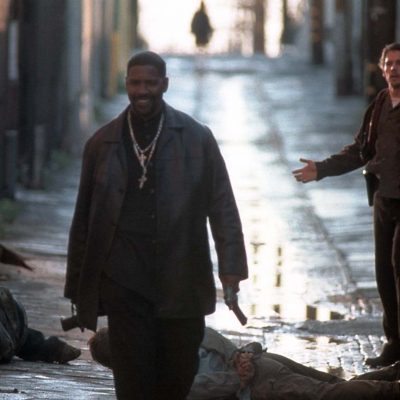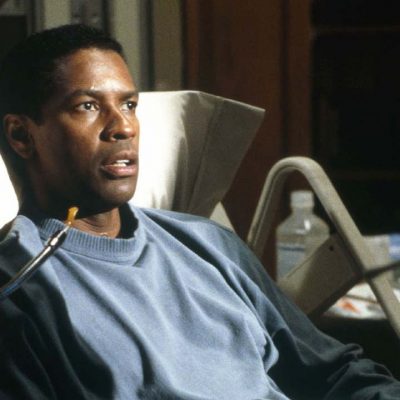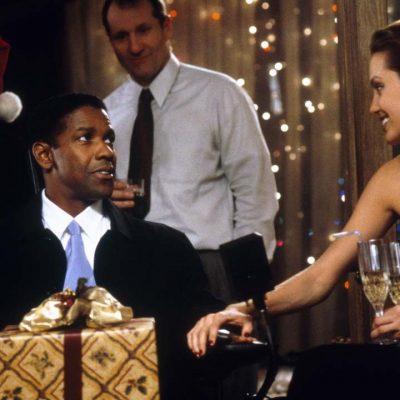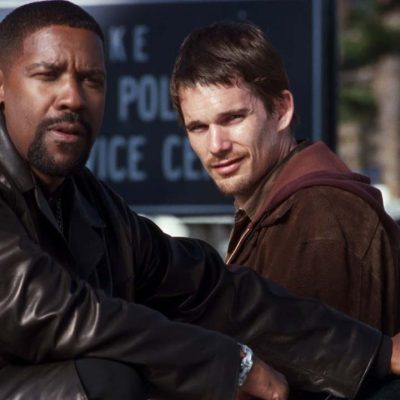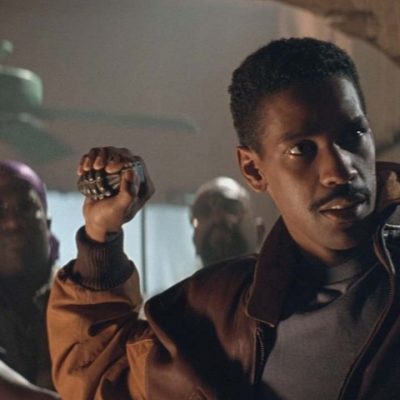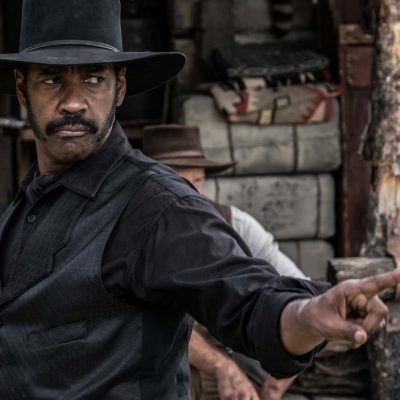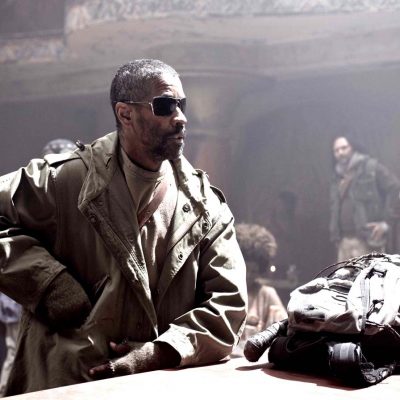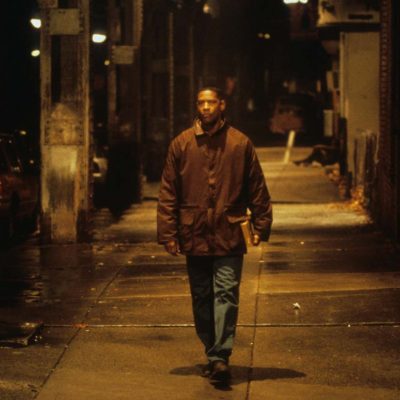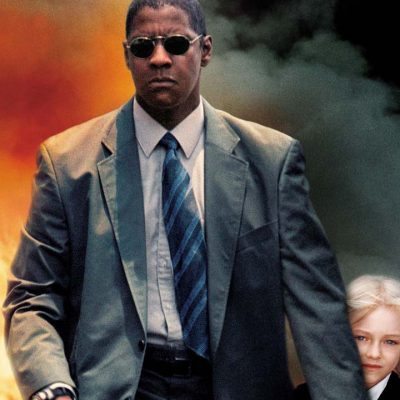THIS SON OF NEW YORK AND ACADEMY AWARD-WINNING ACTOR DISCUSSES HIS FIRST WESTERN: A FASCINATING TURN AS A GUNSLINGER IN THE REMAKE OF A HOLLYWOOD CLASSIC
BY MATT SCANLON AND SUSAN HORNIK
Remakes and sequels have had a rough 2016, with Zoolander 2, The Huntsman: Winter’s War, Alice Through the Looking Glass, Ghostbusters, and Ben Hur listed among the most notable revenue disappointments of the year, as measured by boxofficeflops.com. And even though ticket sales for 2016 are expected to match last year’s total movie haul of $11.12 billion, it has been films with the biggest budgets that have caused the most piercing money headaches, with Ben Hur alone, at press time, netting Paramount Pictures and Metro-Goldwyn-Mayer just $19.6 million in domestic gross against a $100 million budget.
It is in this odd and trying environment that director Antoine Fuqua brings a modern vision to a classic Western in Metro-Goldwyn-Mayer Pictures’ and Columbia Pictures’ The Magnificent Seven. The original 1960 version, directed by John Sturges and starring Yul Brynner, Steve McQueen, and Charles Bronson, was itself an adaptation of Japanese director Akira Kurosawa’s classic, Seven Samurai. (And so impressed by Sturges’s vision was Kurosawa that he sent the director a ceremonial sword as a gift.)
The modern remake’s screenplay, by Nic Pizzolatto and Richard Wenk, tells the story of the town of Rose Creek, which is in the grip of industrialist Bartholomew Bogue (Peter Sarsgaard). Its desperate townspeople, led by Emma Cullen (Haley Bennett), employ protection from seven outlaws, bounty hunters, gamblers, and hired guns—Sam Chisolm (Denzel Washington), Josh Faraday (Chris Pratt), Goodnight Robicheaux (Ethan Hawke), Jack Horne (Vincent D’Onofrio), Billy Rocks (Byung-Hun Lee), Vasquez (Manuel Garcia-Rulfo), and Red Harvest (Martin Sensmeier). As they prepare for the showdown, the mercenaries find themselves fighting for more than money.
No stranger to blending action and character-driven storytelling, Fuqua helmed the boxing drama Southpaw for The Weinstein Company, starring Jake Gyllenhaal, as well as The Equalizer for Sony Pictures, which reunited him with Washington (Fuqua’s critically acclaimed drama, Training Day, earned an Academy Award for Denzel Washington for Best Actor). He also directed Olympus Has Fallen, starring Gerard Butler and Morgan Freeman; Brooklyn’s Finest with Richard Gere; King Arthur with Clive Owen; and the blues documentary Lightning in a Bottle, executive produced by none other than Martin Scorsese.
Producer Todd Black said that he thinks Washington was drawn to the new project for a number of reasons. “First, he had never done a Western,” he said. “He also rarely does ensembles, and I think he thought it would be fun to do one. It was a different way for him to do an action film. He had a strong relationship with Antoine [Fuqua]. But most of all, it was different, and he’s always looking for different.”
Washington, in production notes for the film, said that he was indeed attracted by the chance to play Chisolm, the leader of the seven. “There are those who have been put on this Earth to protect the innocent,” said the actor. “For this town, he is the right man at the right time.”
In the film, Chisolm is one of the few members of the seven who operate with something of a tacit approval from law enforcement. “He’d tell you he’s a duly sworn warrant officer from Wichita, Kansas, and a licensed peace officer in Arkansas, Indian Territory, Nebraska, and seven other states,” said Washington. “He’s a black man in the frontier, in a position of authority, so he needs to let people know he has authority from the government to do this job. He’s a loner, and unafraid. He’s a master with his weapon but he’s not a braggart; he’s a lonely,
“Our film reflects more of what the world was like in 1874,” Washington said. “There were blacks, whites, Asians, and obviously, Mexicans. It was actually a more honest representation…We say the ‘West,’ because someone starting calling these [films] Westerns, but it really was just the frontiers. There was more equality and opportunity in the frontier than in the South.”
honorable, courageous man, not especially used to dealing with people.”
“We did a lot of research into guys like that—free black men truly from the West who did that for a living—so we took that and ran with it,” explained Fuqua. “When we first meet Chisolm, he’s just going after bad guys and bringing them back to the judge or killing them. Either way is okay. He’s in a very cold, dark place—all business—until Haley Bennett’s character told him there’s a man in town who is killing men, women, and children, and his reaction to that is what stops him.”
Though performances by Seven Samurai and the original The Magnificent Seven leads Takashi Shimura and Yul Brynner have passed into legend, Washington wasn’t worried or even influenced by a previous version. “I’ve never seen The Magnificent Seven, and I don’t approach a character based on past movies,” he explained. “I don’t know how to play ‘mythical’ …don’t even truly know what that means. I just look at the script and what it said about this man in these circumstances.”
At the Venice Film Festival press conference, Washington spoke about the new production’s multicultural cast.
“Our film reflects more of what the world was really like in 1874,” he explained. “There were blacks, whites, Asians, and obviously, Mexicans. It was actually a more honest representation… We say the ‘West,’ because someone starting calling these [films] Westerns, but it really was just the frontiers, wherever the west was. Those men and women who went out into the frontier, they had to live by their gun or by their reputation and strength….there was more equality and opportunity in the frontier than in the South.”
A native of Mt. Vernon, NY, and a graduate of Fordham University, where he majored in drama, Washington, 61, spent a year at San Francisco’s American Conservatory Theatre before beginning his professional acting career. Since then, performances have garnered him two Academy Awards, three Golden Globes, and numerous other honors. His professional acting stints began in New York, where he performed in theatre productions like Ceremonies in Dark Old Men and Othello. He rose to fame after landing the role of Dr. Phillip Chandler on NBC’s long-running television series, St. Elsewhere (other TV credits include The George McKenna Story, License to Kill, and Wilma).
The Los Angeles resident earned his first Oscar nomination for Cry Freedom, playing South African anti-apartheid activist Steve Biko. He went on to portray the titular Muslim minister and human rights activist in Malcolm X, boxer Rubin “Hurricane” Carter in The Hurricane, football coach Herman Boone in Remember the Titans, poet and educator Melvin B. Tolson in The Great Debaters, and drug kingpin Frank Lucas in American Gangster. He received his first Academy Award for the historical war drama, Glory, and his second for the portrayal of a corrupt cop in the crime thriller Training Day. Washington also won a Tony Award for his performance in Fences, during a 13-week return to Broadway at the Cort Theatre in 2010.
In Unstoppable, Washington reunited with director Tony Scott for the fifth time (following Crimson Tide, Man on Fire, Déjà Vu, and The Taking of Pelham 1 2 3). He was also seen in 2 Guns (2013), alongside Mark Walberg, and The Equalizer (2014). In 2016, he was selected as the recipient of the Cecil B. DeMille Lifetime Achievement Award at the 73rd Golden Globe Awards, cementing his Hollywood legacy.
While reporters spoke with him at the Toronto International Film Festival, where The Magnificent Seven premiered on September 8, Washington said simply of his films that, “I don’t try to tell people what to expect…When they ask me what do I think they should get from a movie, I say it depends on what they bring.”
The actor’s upcoming projects include a cinematic adaptation of August Wilson’s Fences, set for release this December. Along with both producing and directing the film, Washington will reprise his original Tony Award-winning role, alongside Viola Davis.


